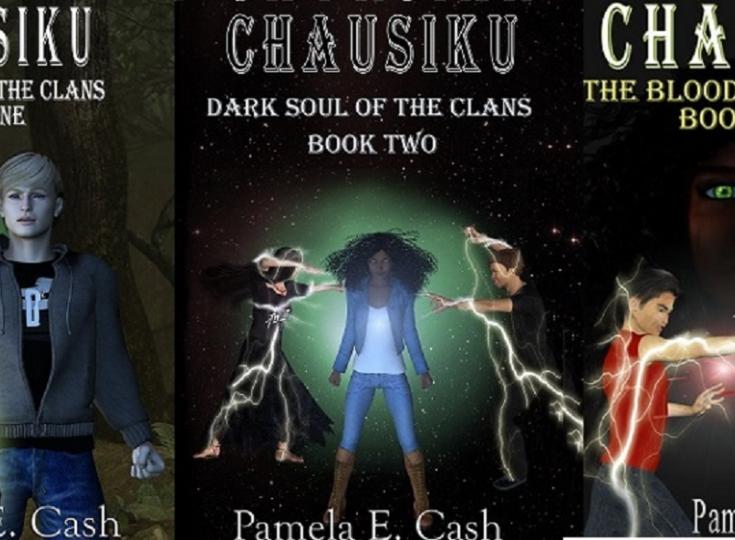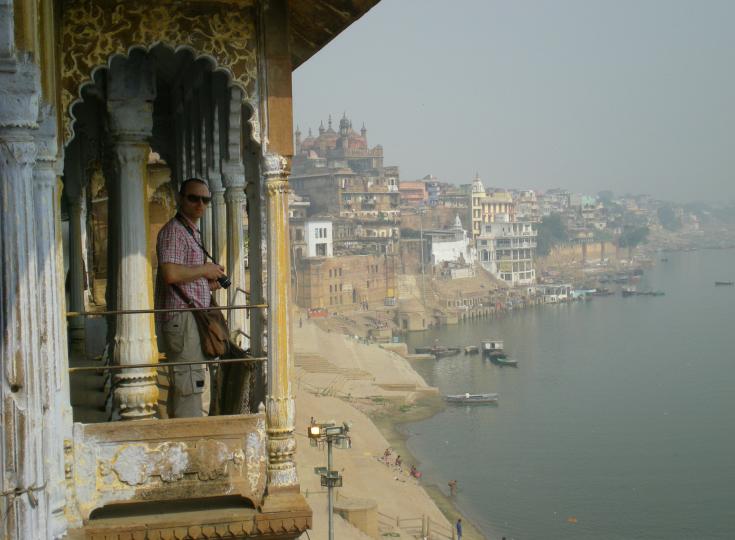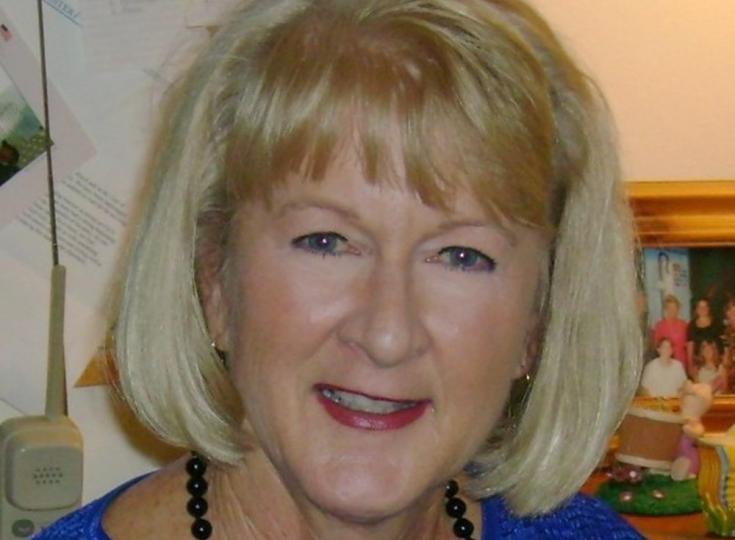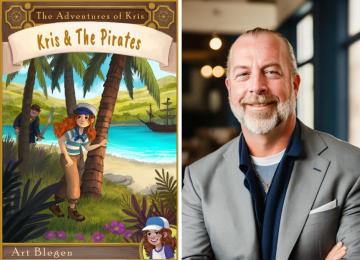Leonard Ruhl - A Kidnapping, a Cartel, and a Sham trial
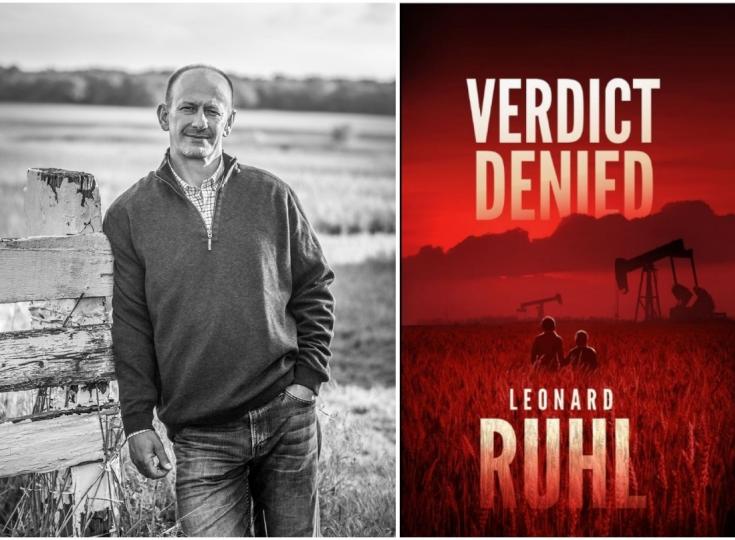
Leonard Ruhl is the pseudonym of a former criminal defense attorney and state and federal prosecutor with years of experience prosecuting serious felony cases including murder and large-scale drug trafficking. Beyond his years as a trial lawyer, Mr. Ruhl's legal career is ongoing, but he feels constrained by the rules from revealing more here. His writing and publishing experience is as a jurist. Verdict Denied is his first work of fiction. Let's just say when he's not sitting on the bench professionally, he sitting the bench on a softball field coaching girls' 12 and under softball. As our Author of the Day, Ruhl tells us all about his book, Verdict Denied.
Please give us a short introduction to what Verdict Denied is about.
A young judge is just days from commencing a death penalty jury trial when his sister is kidnapped by a drug cartel. Their demand for her return: the judge must acquit the defendant when the state rests its case.
What inspired you to write about a kidnapping, a cartel and a sham trial?
So I was looking for the ingredients of a predicament worthy of persuading a brave, fundamentally moral person of great character to break laws and oaths and closely held personal values. I needed the world to land on this person like a thousand elephants to see how all his “good” characteristics would fare in a life and death gutter fight.
The inspiration for just such a story came from the cases I prosecuted and the stories we see in the news about the kidnappings and the cartels in today’s real world Mexico. I imagined the current reality in Mexico moving north up I-35 several hundred miles to the geographical center of the crown jewel of the drug trade—the American market.
According to “Mexico United Against Organized Crime,” the number of criminal groups in Mexico went from six to four-hundred from 2007 to 2016. Part of this was due to the Mexican government’s effort to arrest cartel leaders, which disrupted a relatively peaceful balance of power. The criminal groups, which some sources say is in the thousands actually, are scrambling to fill the power vacuum and get their share of the drug trade, but they need money to fund their efforts and use kidnapping/ransom tactics to do so. The money they get as ransom is used to buy the allegiance of public officials like police and judges. For example, the money can buy police cooperation in kidnapping or drug trafficking, or maybe it’s just enough to get the police to look the other way. That’s the carrot. This stick . . . well that would be cutting the heads off the entire family of someone who crosses them, including a cop or a judge. According to a study by the National Commission on Human Rights in Mexico, 85 to 95 percent of Mexicans believe their police are corrupt. When law and order break down to this extent, one’s own survival becomes the justification for becoming part of the corruption. Standing up for what is right becomes too hard. It’s a very human problem. We’ve all been there to a lesser extent. Even the saints, if you’re a Christian, have the same flaw. Peter denied Jesus three times when the going got tough. And then there’s Judas, of course, who basically took thirty pieces of silver to facilitate the kidnapping and murder of Jesus.
But what inspired the sham trial, you ask?
Keeping in mind the spread of the sort of violence and corruption we see from cartels specifically, I came across a bit of American law that seemed tailor made for a legal thriller—something a cartel on the brink of destruction might exploit if left little choice. A court’s “judgment of acquittal” of a defendant at the close of the state’s presentation of evidence has the same binding effect as a jury’s verdict of not guilty. Double jeopardy prevents a retrial, and it doesn’t matter how wrong the court may be in granting the acquittal. There’s no appeal, and the defendant can’t be tried again. Of course, nothing in law can ever be that simple, and those loose ends in the law provide the characters in Verdict Denied with powerful motives that keep the action rolling throughout the second and third acts of the book.
How much has your own experiences as a former criminal defense attorney and prosecutor influenced your writing?
My experiences pervade every aspect of my writing, from tone to dialogue, to the attitudes and motives of the characters. For the book to meaningfully reflect reality, I thought the motives for my characters needed to mirror what I see in my real world cases. In my opinion, 99 percent of the time the motive for crime is, at its root, either money, sex, or power, or some combination thereof.
Also, some of the fine details of cases I’ve been a part of or studied make their way into Verdict Denied organically, but everything is fictionalized at my whim. Here’s two examples from the real world in this book: a drug dealer with a stable of fighting roosters; and a hair clip deflecting a bullet and saving the life of a potential murder victim.
Tell us more about Judge Ben Joel. What makes him tick?
He’s a bit of a world-weary cynic with a sound understanding of human psychology, particularly his own. While he often adheres to a generally accepted moral standard, he does so without being preachy, and often under protest, and he’s all too aware of his own failings including his mean-spirited blood lust in the face of his own destruction or the destruction of his family. This blood lust has its roots in Ben’s troubled upbringing, and manifests itself in his cold, reactive, brutality towards those threatening his family.
Why did you pick the Kansas plains as the backdrop for your story?
That’s simple and you’ve heard this somewhere: Write what you know. I know Kansas like the back of my hand.
Besides writing, what other secret skills do you have?
For some reason my eye-hand coordination remains at a high level. I coach my eleven-year-old daughter in softball and see she has the same gift. It’s one of the great joys in life to see yourself in your children.
Have you always known you wanted to be a writer? What inspired your debut?
In eight grade my language arts teacher required us to write a short story. I loved it. It was all about my black lab Ziggy saving everybody on a boat in a storm. I remember thinking it would be cool if I could just make stuff up all day for money. Turns out, I still think that would be cool. I’m not sure what inspired me to finally take this up now, other than I like doing it and I’m bullheaded enough not to quit. I’m drawn to things that are hard to master, like golf and baseball and writing. There’s so much failure involved in succeeding. I live for poking my head above all the failure for those moments when it all comes together.
Some readers say this thriller is dark and gritty. Why did you take this approach?
I didn’t really choose to take this approach, it’s just how I see the world, so that’s reflected in my writing. I suppose if I delivered balloons and giant Publisher’s Clearing House checks to the needy I’d see the world differently, but that’s not been my experience. Many times when I’m in a courtroom, someone’s been robbed, stolen from, shot, beat, raped, or murdered. It’s sad what I see happen to children. You don’t come out of it thinking there’s no such thing as evil, I can tell you that.
Is there an underlying message you wish to relay about basic human nature through your characters?
Yes. There is objective truth and an objective moral standard that we all sidestep in our own way on occasion because we can’t measure up to it.
All societies agree murder is wrong, for instance. I believe we are all born with this knowledge. If all humans got together one day and declared that murdering infants was now okay to depopulate the planet, for example, I’d still say that murder is wrong because of the existence of an objective moral standard. It’s like math in a way. It exists even if you can’t see it. Two plus two is four, even if everyone declared the answer to be five. People who believe in an objective moral standard might debate where it comes from, but I have no doubt it’s there.
In some respects, what you see from the cartels in Verdict Denied, is very close to a total disregard of any objective standard at all. There is no right and wrong for them in pursuit of money and power and sex. Some of the characters don’t bother with the flimsy excuses the rest of us so called good people need to get through the day. They set themselves up as the gods of their own world and everything must bow to that. They are god. If murder and rape and selling poison is what it takes to please them, then that is what must be done. This isn’t fiction, by the way, it’s the reality of cartel culture. There is no bottom to the depths someone this lost will go to bend the world to their will. That isn’t to say that sometimes the cartel characters didn’t do “good” things in this book or have any admirable qualities. Sometimes they did, if it aligned with their self-interest. Even a broken clock is right twice a day.
So, how does someone attempting to adhere to an objective moral standard deal with attacks from those that have no such limits? Benjamin Joel finds himself in the position of weighing competing moral standards. We are all obligated to protect our family, morally. Furthermore, as a judge, Ben took an oath to uphold the law. He’s in the difficult position of choosing which objective moral standard to uphold. Should he break the law and his oath to uphold it or should he blow the whistle on the sham trial and sacrifice the lives of his family to uphold the law? Something’s got to give. He cannot protect his family and uphold the law at the same time. One of his (moral) instincts has to lose. You can imagine which instinct has more emotional punch with Ben, can’t you? Family, right? Ben is torn about the rightness of his decision, but chooses to go with his emotions, acutely aware of the lines he may be crossing in this dark night of the soul. Finally, in the gutter fight you might expect to find at the heart of this story, the reader might think Ben goes too far in the fog of war on several occasions, perhaps even committing murder as the law defines it. Yes, even Ben, an expert in the law, isn’t sure if he factually committed a murder as the law defines it. You’ll have to read the book to figure out how this is possible. The reader can decide if Ben committed murder, and if so, whether or not it was morally justified despite violating man’s law.
Verdict Denied is your first work of fiction. What has the experience been like so far?
Writing the book was a roller coaster ride. Lots of ups and downs. I threw the whole thing in the toilet, figuratively speaking, several times. Sometimes it felt like I was staring into an abyss. Nothing worked and I’d question why I spent so much time on such a frivolous piece of fiction. Some days things would click and I’d have breakthroughs that surprised me. The key was letting my subconscious mind mull things over. I had to give myself time to get this right. I’m very pleased with how it came out.
You write about some heavy themes—things that many of your readers have probably never experienced—yet it's very easy to identify with your characters. How do you make them so relatable?
I hope it’s true that the characters are relatable. Some members of the cartel in this book loved their families as much as Ben loved his family and both used an “any means necessary” mantra on some level to protect themselves and their family and justify their actions. This blurred the lines between the good guys and the bad guys and hopefully made them more than cardboard cutouts. Note that love is a good thing. Maybe the ultimate good thing. The point is, that most of the time evil comes from pursuing good things in violation of this objectively moral standard that we humans find impossible to uphold. We are all on the spectrum here. That’s relatable in a character because everyone knows it’s universally true.
Do you have any interesting writing habits? What is an average writing day like for you?
My work/life schedule is too busy at the moment, so finding time to write is very difficult. I take what I can get. It’s over noon hours or early in the morning or on days off. I’m not choosy. I adapt, but I now know when my brain is fried and I’m just wasting my time. I don’t think it’s a discipline problem. It’s a time/energy problem. It’s just where my life is right now and I’m not complaining because my life is filled with good things. As things naturally drop away from my schedule as my kids get older, I’ll need to resist the world. It has a way of filling my life up with its junk.
What are you working on right now?
I’m working on my second book, but I’m superstitious so I won’t disclose more here other than to say it will be a legal thriller, in some ways related to this first book.
Where can our readers discover more of your work or interact with you?
Facebook @ https://www.facebook.com/Leonard-Ruhl-Books
Website: leonardruhl.com

